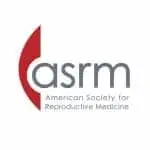
As individuals navigate through the twisty road of family building, the question of “When am I a parent?” looms in the background. For some people, it’s when they are first embarking on this road. Knowing their intention to see this through to having a child, through whatever means possible, makes them feel like a parent. They know that the love, intention, and presence they have, already makes them a parent. For others, not even having the baby placed into their arms for the first skin to skin contact after birth, can help solidify the identity of parenthood. After such a long journey, it can feel surreal to have a baby in your arms and the reality hasn’t set in yet. Discovering what makes you a parent is an identity shift that takes time and intentionality.
Letting Go of Traditional Narratives
How do you imagine your grandparent(s) might have defined being a parent? As technology advances and cultural norms shift, so too does our experience and definitions of parenthood. Consider the role that genetics play in your definition of parenthood. We know that both nature and nurture contribute to how children grow, but it is responsiveness, care, and presence that contribute to secure attachments. Being a mother or a father is far more than what genetics contributed to the baby’s DNA.
Depending on how you define an embryo, sometimes parents can feel the identity starting when embryos are created. When a gestational carrier is pregnant, bonding can start to happen with the baby and can be a time when intended parents start being cautiously optimistic that their dreams might become a reality. The miraculous joy of listening to the heartbeat for the first time can create a sense of connection and contribute to a growing feeling of being a parent. Consider what rituals you can create with your gestational carrier that helps you further develop your identity as a parent. Perhaps you write letters to your baby that the surrogate reads, or you record yourself reading baby books that you’ll soon read out loud, and the surrogate plays those recordings in the 3rd trimester for the baby. What are ways that you can strengthen your bond with your baby even before they are placed in your arms?
Who Are You Becoming
For decades of your life already, intended parents have navigated the world in many roles. From being a child, to growing into an adult, to becoming a partner or choosing single parenthood, from being a student to having a professional identity, role shifts have happened and influenced who you are. Bringing intentionality into this shift to parenthood can give you a sense of control in a journey that often feels like you are along for the ride, instead of driving the car. I encourage intended parents to reflect on the following:
Erikson’s classic theory of psychosocial development, and his stage of ‘Generativity vs. Stagnation’, gives us the perspective that caring for others and being productive to support growth of future generations can give a sense of purpose to this stage in life. Ask yourself, what motivated you to pursue this journey towards parenthood. What vision did you have for its purpose in your life? How do you envision your love and dedication to raising a child, influencing you?
Telling Your Story
Narrative identity theory (McAdams, 2001), encourages us to see how the story that we have for our life, provides us with unity and purpose. As you share with others about your surrogacy journey, be mindful of what story you are creating.
Living in the World
Developing your identity as a father or a mother doesn’t happen in isolation, it happens within a societal and cultural system that brings questions, assumptions, and biases. Your social identities, such as race, gender, sexuality, and marriage status, all will influence how others view you as a parent. Building a network of families with similar identities to yours is important, both for your own well being and your child’s. Based off of over four decades of research, Dr. Susan Golombok, in her book “We are family; what really matters for parents and children” highlights the role that a supportive community has. She concluded:
What these families show us is that the make-up of families—the number, gender, sexual orientation, gender identity, and biological relatedness of parents—matters less for children than previously thought. The presence of a father, or even a mother, or two parents is not essential for children to thrive. What matters most for children is the quality of relationships within their family, the support of their wider community, and the attitudes of the society in which they live. (p. 251, emphasis added).
We know from the vast research on minority stress theory that challenges come from social stigma, not internally inadequacies. So being sure that you have a strong community that supports you and lifts you up as a parent, is a critical component of your journey towards parenthood.
Becoming a parent, like any identity development, takes time, intentionality, and limitless buckets of love and patience. As you navigate your family building journey, I hope you take time to center yourself and reflect on these questions, surround yourself with supportive communities, and thrive in your life with your new baby (to come).
References
McAdams, D. P. (2001). The Psychology of Life Stories. Review of General Psychology, 5(2), 100-122.
https://doi.org/10.1037/1089-2680.5.2.100
Golombok, S. (2020). We are family; What really matters for parents and children. Scribe Publications.

Dr. Diederich at Sweet Springs Consultation and Assessment, can help you navigate through the steps of third-party production. She conducts evaluations of gestational carriers, provides consultations for intended parents, facilitates joint meetings, and runs monthly support groups for parents. Whether you are in Pennsylvania, New York, Hawaii or in one of the other PsyPact states that Dr. Diederich can practice in virtually, she can help you along your journey.





